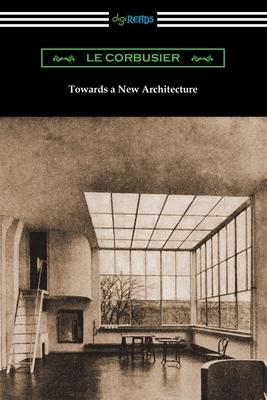Originally published in French as a series of essays in the magazine "L'Esprit nouveau (revue)" beginning in 1921, "Towards a New Architecture" by Le Corbusier was published as a book in 1923 and first translated into English in 1927. Le Corbusier's revolutionary approach to architecture became an instant classic and a highly influential work on the meaning and function of buildings and cities in the modern age. Born in Switzerland as Charles-Edouard Jeanneret in 1887, Le Corbusier became a world-renowned architect. In "Towards a New Architecture," he expands upon and clarifies his guiding design principles specifically that buildings should serve modern needs and that form should be pure. Le Corbusier rejected much of classical and art deco design as valuing stylistic experimentation and expression over function. His dramatically different ideas of using materials and design to change the relationship of people with their surroundings completely transformed modern architecture and city planning and remain relevant and informative to this day. "Towards a New Architecture" is a must-read for every architect, designer, urban planner, and anyone who desires to better understand one of the twentieth-century's most important architectural figures. This edition is printed on premium acid-free paper.

Originally published in French as a series of essays in the magazine "L'Esprit nouveau (revue)" beginning in 1921, "Towards a New Architecture" by Le Corbusier was published as a book in 1923 and first translated into English in 1927. Le Corbusier's revolutionary approach to architecture became an instant classic and a highly influential work on the meaning and function of buildings and cities in the modern age. Born in Switzerland as Charles-Edouard Jeanneret in 1887, Le Corbusier became a world-renowned architect. In "Towards a New Architecture," he expands upon and clarifies his guiding design principles specifically that buildings should serve modern needs and that form should be pure. Le Corbusier rejected much of classical and art deco design as valuing stylistic experimentation and expression over function. His dramatically different ideas of using materials and design to change the relationship of people with their surroundings completely transformed modern architecture and city planning and remain relevant and informative to this day. "Towards a New Architecture" is a must-read for every architect, designer, urban planner, and anyone who desires to better understand one of the twentieth-century's most important architectural figures. This edition is printed on premium acid-free paper.